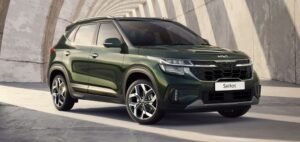Prime Highlights:
- Zoox makes second robotaxi software recall in a month following crash with electric scooter.
- The recall covers 270 cars and addresses tracking issues in its perception system to prevent future crashes.
Key Facts:
- There was a small collision involving an empty Zoox autonomous vehicle and an electric scooter at an intersection.
- The scooter rider had minor injuries and declined medical attention; no passengers were in the Zoox car.
Key Background:
Amazon’s autonomous vehicle unit Zoox has released its second voluntary software recall in the same month. This comes after one of its robotaxis self-crashed into a collision with an electric scooter in a downtown city center. The vehicle had initially come to a halt to give way at an intersection before moving again just as the scooter crashed into it. The accident did not result in further impact once the rider was already down, and the rider declined medical attention at the scene.
The recall covers 270 Zoox vehicles. The company explained that the issue lies in the vehicle’s perception and tracking software, which may overestimate how close objects—like pedestrians or scooters—are approaching it. The mistake could lead to hazardous results, especially in city areas where there are dense conditions. This is the second vehicle software fix issued by the company in a month after it was prompted by an earlier recall caused by a similar low-speed crash with another car.
Zoox notified federal regulators about the accident and took the initiative to file a notice of recall. In its press release, the company once again committed itself to safety, openness, and proactiveness to improve. National Highway Traffic Safety Administration remarked upon the recall and warned people to be cautious near self-driving vehicles that are yet to come out of the testing and development stage.
As cities fill up and driving becomes more automated, the challenges for autonomous vehicle technology become clearer. AV companies make assurances of a world with fewer crashes and safer roads, but on-the-street reality, especially with volatile road users like scooter drivers and cyclists, waits to belie these assurances. The recent progress raises questions regarding the readiness of the AV technology for public consumption and how companies will enable these systems to respond appropriately to real-world nuances. Zoox claims that constant testing and software revisions will address such problems as it works towards a broader commercial rollout.
Read More: Samsung Eyes $100M Investment in AI Medical Imaging Startup Exo








